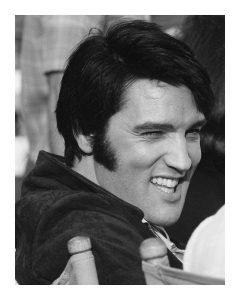When Elvis Presley tackled the Righteous Brothers’ classic “You’ve Lost That Lovin’ Feelin'” in 1970, he brought his unique interpretive powers to bear, transforming the iconic song into a mesmerizing showcase of his unparalleled vocal prowess and his innate understanding of the nuances of R&B and soul.
Presley’s version opens with a captivating a cappella introduction, showcasing the rich, resonant quality of his voice and establishing an intimate, almost confessional tone. As the lush, orchestral arrangement gradually builds, Presley’s delivery becomes increasingly impassioned, his phrasing and inflections imbuing the familiar lyrics with a profound sense of longing and emotional urgency.
Throughout the performance, Presley seamlessly blends his signature style – the smooth, velvet-like quality of his voice, the effortless command of rhythm and pacing – with the soulful, gospel-tinged aesthetic of the original. The result is a mesmerizing interpretation that pays homage to the Righteous Brothers’ version while still firmly asserting Presley’s own artistic identity and interpretative vision.
What truly sets Presley’s “You’ve Lost That Lovin’ Feelin'” apart is the raw emotional power of his performance, which cuts to the very heart of the song’s themes of love and loss. His ability to convey the full spectrum of human emotions – from the tenderness and vulnerability of the verses to the impassioned, almost pleading urgency of the chorus – is a testament to his unparalleled talent as a vocalist and his profound understanding of the human experience.
In the context of Presley’s expansive discography, this rendition of “You’ve Lost That Lovin’ Feelin'” stands as a shining example of his versatility and his willingness to tackle material that challenged his creative boundaries. The song’s enduring popularity and the countless covers and reinterpretations it has inspired over the decades are a testament to the timeless, transcendent power of Presley’s musical artistry and his ability to leave an indelible mark on the cultural landscape.
